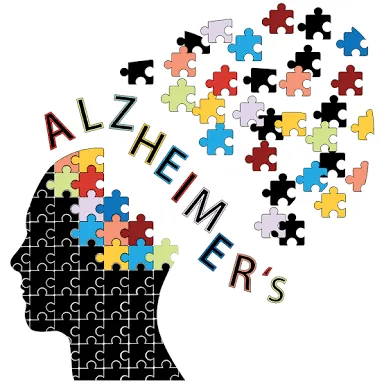
What is Alzheimer's Disease?
Alzheimer's disease (AD), also referred to simply as Alzheimer's, is a chronic neurodegenerative disease that usually starts slowly and worsens over time. It is the cause of 60% to 70% of cases of dementia. The most common early symptom is difficulty in remembering recent events (short-term memory loss).
What is the cause of alzheimer’s disease?
Alzheimer's is caused bybrain cell death. It is a neurodegenerative disease, which means there is progressive brain cell deaththat happens over a course of time. The total brainsize shrinks with Alzheimer's - the tissue has progressively fewer nerve cells and connections.
what age can you get alzheimer disease?
Alzheimer's is not just a disease of old age. Younger-onset (also known as early-onset) Alzheimer's affects people younger than age 65. Up to 5 percent of the more than 5 million Americans with Alzheimer's have younger-onset.
what is the symptoms of alzheimer's disease?
Symptoms may include:
increased memory loss and confusion.
problems recognizing family and friends.
inability to learn new things.
difficulty carrying out multistep tasks such as getting dressed.
problems coping with new situations.
hallucinations, delusions, and paranoia.
impulsive behavior.
how to prevent alzheimer's disease?
Preventing Alzheimer's disease
As the exact cause of Alzheimer's disease is still unknown, there's no way to prevent the condition. However, there are steps you can take that may help to delay the onset.
Staying mentally active
There's some evidence to suggest that rates of dementia are lower in people who remain as mentally, physically and socially active as possible throughout their lives, as well as among those who enjoy a wide range of different activities and hobbies.
It may be possible to reduce your risk of Alzheimer's disease by:
• reading
• writing for pleasure
• learning foreign languages
• playing musical instruments
• taking part in adult education courses
• playing tennis
• playing golf
• swimming
• group sports, such as bowling
• walking
Interventions such as "brain training" computer games have been shown to improve cognition over a short period, but research hasn't yet demonstrated whether this can prevent alzheimer.